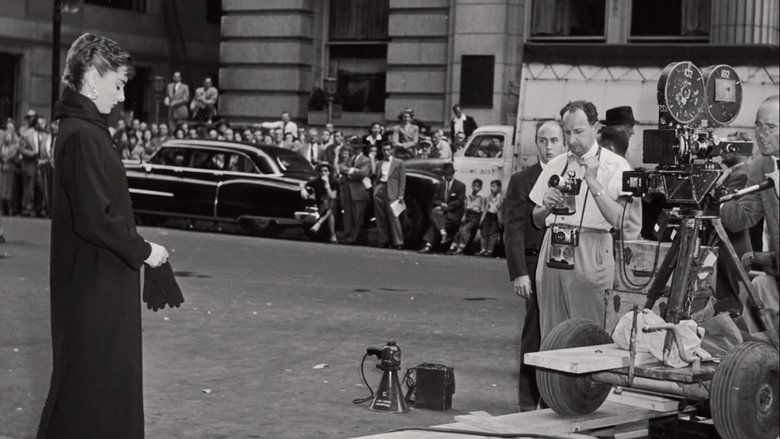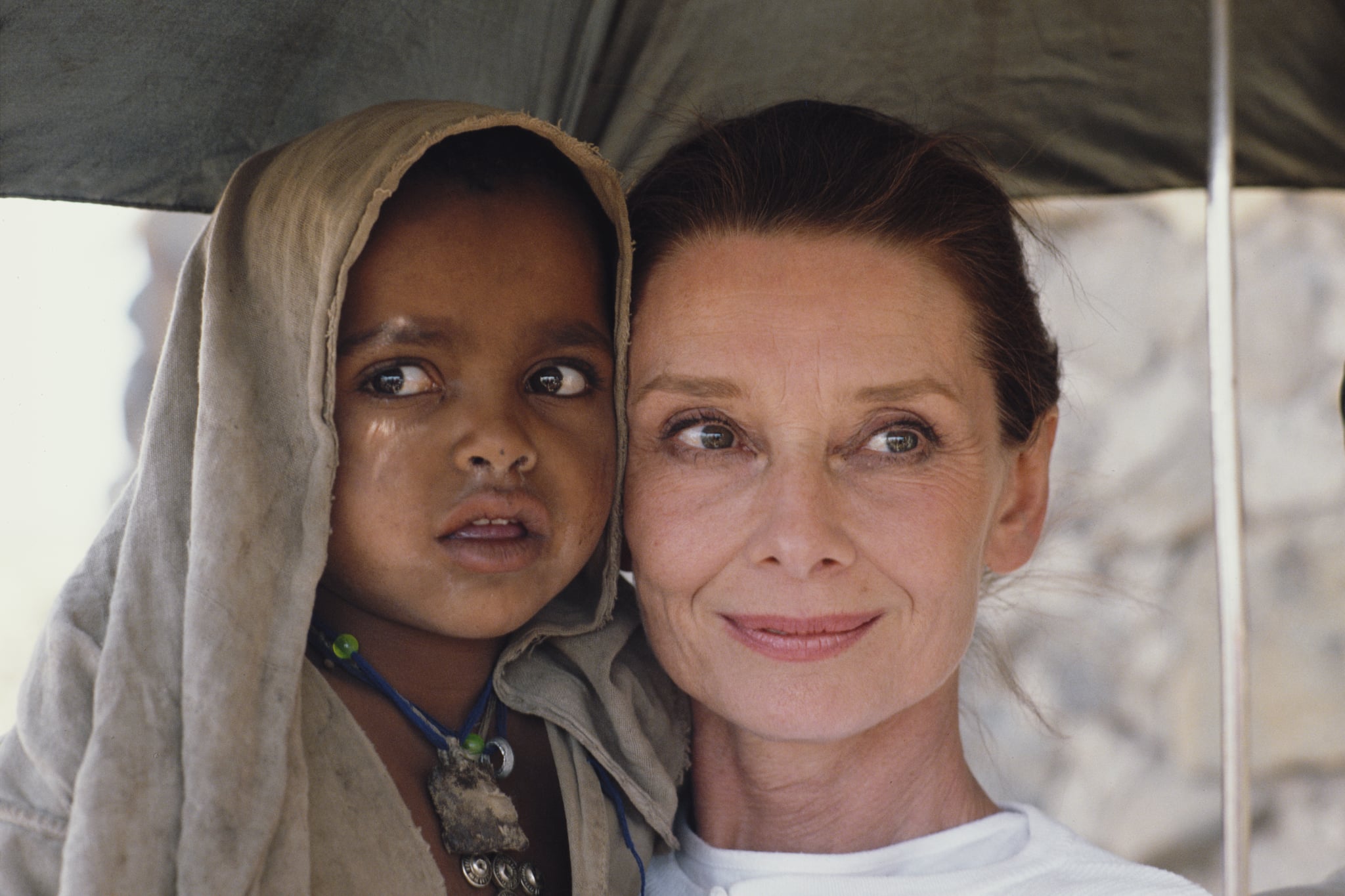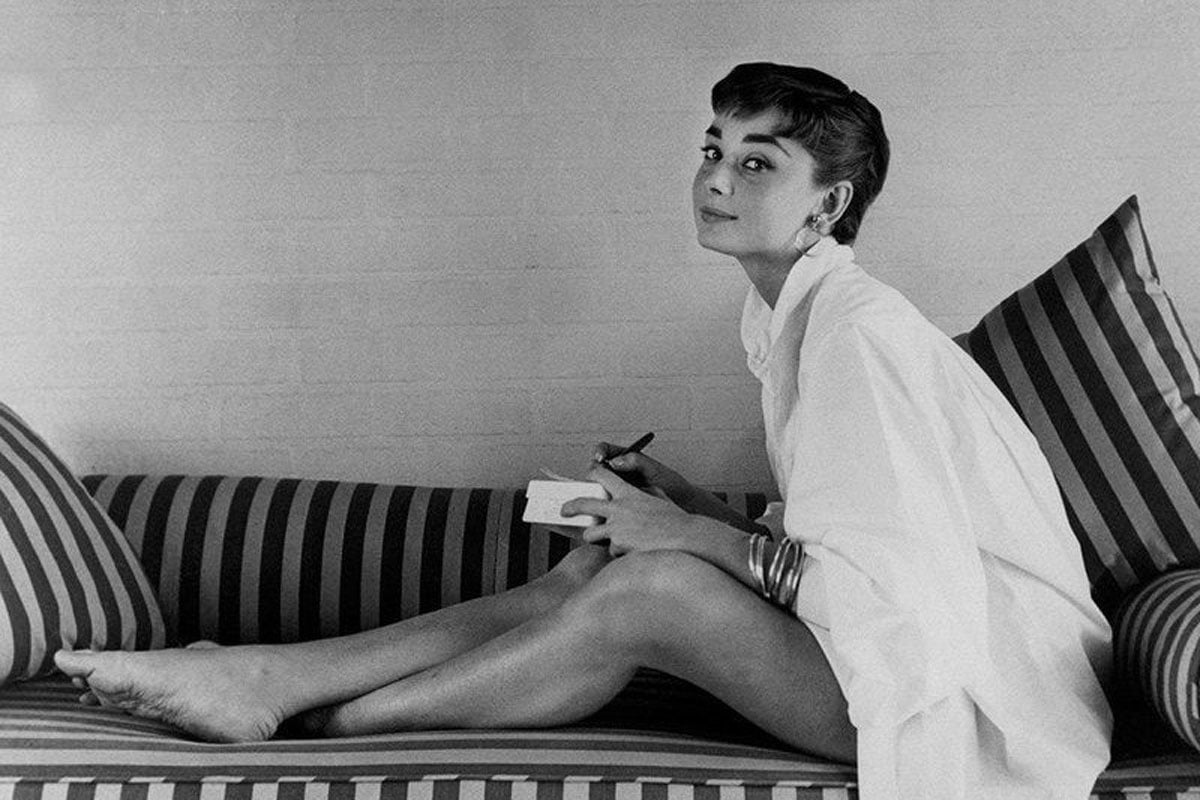← Back to Reviews

in
Audrey
She was a dancer, an actress, a humanitarian, and one of Hollywood's greatest icons, but a gifted director named Helena Coan gives us an unexpected and completely enchanting look inside a Hollywood actress unlike anything we've ever seen. The 2020 documentary Audrey doesn't offer the behind the scenes dirt we expect from such a film, but gives the viewer a look at the person behind the icon.

The reason I first mentioned that she was a dancer is because we are told almost immediately, in Audrey's own voice, is that Audrey's first show business ambition was to be a ballet dancer. Some early footage of Hepburn's dance ability, which eventually became forgotten, morphs into a framework for Audrey's story which director Coan represents through three ballet dancers dancing Audrey's life in symbolic ballets that introduce different parts of her fascinating life and career.

After brief introductory material around the war-torn Belgium that brought her parents together, we are immediately thrust into the beginning of Audrey's incredible career, narrated by herself and the people who knew her best. Audrey worked with some of Hollywood's most charismatic leading men, but it was wonderfully refreshing that the first two connections she made with men were men who were behind the camera: Fashion designer Hubert de Givenchy and photographer Richard Avedon.
/cdn.vox-cdn.com/uploads/chorus_asset/file/17799749/1482501.jpg)
We are treated to a lot of lovely footage of Audrey arriving at movie premieres and getting off planes, showing her being mobbed everywhere she went and we can see that she really didn't know what all the fuss was about. The Hollywood scene held no interest for her and never felt she was worth all the attention. Despite being known as one of our great beauties. there's a lovely moment in the film where we hear Audrey voice everything that she would have changed about herself physically if she could.

The film looks at her marriages to Mel Ferrer and Andrea Dotti, two very controlling men who managed to have an iron grip on Audrey and having numerous affairs behind her back at the same time. What we also see and hear in Audrey's voice is no bitterness and taking her own part in what went wrong in the marriages. If it weren't for these marriages, she wouldn't have her greatest joy, her two sons, who were also the inspiration for her tireless work with UNICEF.

Commentary is provided during the documentary by Peter Bogdanovich, who directed Audrey in They All Laughed, Richard Dreyfuss, her son Sean Ferrer, her granddaughter Emma Hepburn Ferrer, and producer Andrew Wald among others, but the real star of this film is director Helena Coan, whose perfect crafting of film with narration is what makes this such a simultaneously joyous and beautifully quiet look at a Hollywood icon who had no interest being any such thing.
She was a dancer, an actress, a humanitarian, and one of Hollywood's greatest icons, but a gifted director named Helena Coan gives us an unexpected and completely enchanting look inside a Hollywood actress unlike anything we've ever seen. The 2020 documentary Audrey doesn't offer the behind the scenes dirt we expect from such a film, but gives the viewer a look at the person behind the icon.

The reason I first mentioned that she was a dancer is because we are told almost immediately, in Audrey's own voice, is that Audrey's first show business ambition was to be a ballet dancer. Some early footage of Hepburn's dance ability, which eventually became forgotten, morphs into a framework for Audrey's story which director Coan represents through three ballet dancers dancing Audrey's life in symbolic ballets that introduce different parts of her fascinating life and career.

After brief introductory material around the war-torn Belgium that brought her parents together, we are immediately thrust into the beginning of Audrey's incredible career, narrated by herself and the people who knew her best. Audrey worked with some of Hollywood's most charismatic leading men, but it was wonderfully refreshing that the first two connections she made with men were men who were behind the camera: Fashion designer Hubert de Givenchy and photographer Richard Avedon.
/cdn.vox-cdn.com/uploads/chorus_asset/file/17799749/1482501.jpg)
We are treated to a lot of lovely footage of Audrey arriving at movie premieres and getting off planes, showing her being mobbed everywhere she went and we can see that she really didn't know what all the fuss was about. The Hollywood scene held no interest for her and never felt she was worth all the attention. Despite being known as one of our great beauties. there's a lovely moment in the film where we hear Audrey voice everything that she would have changed about herself physically if she could.

The film looks at her marriages to Mel Ferrer and Andrea Dotti, two very controlling men who managed to have an iron grip on Audrey and having numerous affairs behind her back at the same time. What we also see and hear in Audrey's voice is no bitterness and taking her own part in what went wrong in the marriages. If it weren't for these marriages, she wouldn't have her greatest joy, her two sons, who were also the inspiration for her tireless work with UNICEF.

Commentary is provided during the documentary by Peter Bogdanovich, who directed Audrey in They All Laughed, Richard Dreyfuss, her son Sean Ferrer, her granddaughter Emma Hepburn Ferrer, and producer Andrew Wald among others, but the real star of this film is director Helena Coan, whose perfect crafting of film with narration is what makes this such a simultaneously joyous and beautifully quiet look at a Hollywood icon who had no interest being any such thing.
